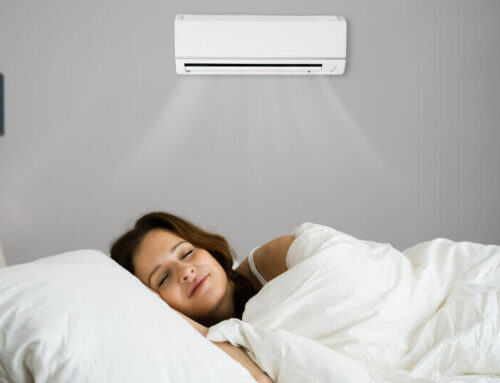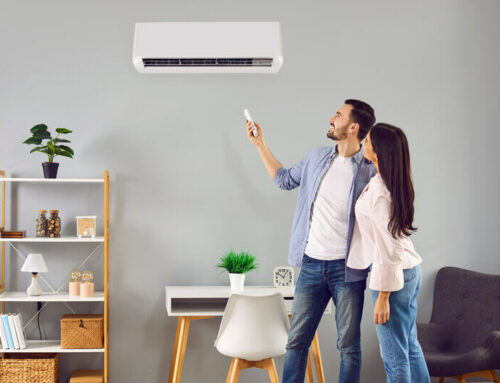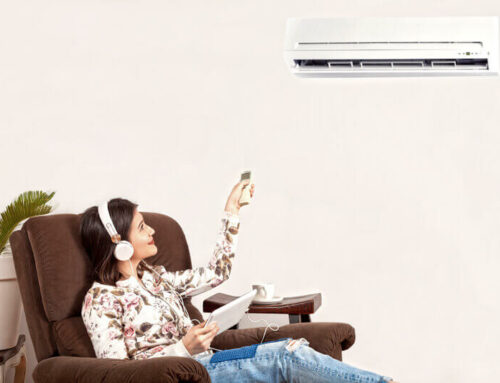Finally, winter is over and the sun is returning to Aotearoa. But while summer isn’t here just yet, spring most certainly is, and with it, a helter-skelter of weather conditions. Springtime weather can change by the hour, from shorts and T-shirt to hat and scarf. Trying to keep your home comfortable in these constantly changing conditions is a tough ask… unless you have a Mitsubishi Electric heat pump!
Why heat pumps are perfect for spring weather
Dual heat pumps do two jobs; heat and cool.
Not only will they effectively heat your home when it’s cold, but they’ll also cool it down when it gets hot.
This incredible technology is perfect for spring weather, keeping your home and your family in that sweet Goldilocks zone!
Warm days
Springtime afternoons can be glorious! A hint of the summer to come, with temperatures creeping up towards 20 and above.
For those without a heat pump, these high temperatures might catch them out, especially if they’ve got their heating on. Suddenly people are returning home to a sweltering hot house at the end of a working day, after having wasted a considerable amount of money on oil, gas or electricity.
A heat pump can cool down a home automatically, only coming on when necessary. And with the latest Wi-fi controls, you can even adjust your air-con from the office before you leave via your phone!
Cold nights
But you can’t trust spring weather. Just because it was warm this afternoon, doesn’t mean it’s going to be warm tonight.
Temperatures can drop just as quickly as they arise, especially at night. It’s not unusual to see a fine, crisp frost on a spring morning, no matter how warm it was the day before.
Again, this is where a heat pump pays for itself. Once your home gets to a certain temperature, the heating kicks on, keeping your home at a nice, comfortable level.
Or if you do come home to a cold living room, a heat pump will heat the place up in a matter of minutes, and at a fraction of the cost of traditional heating.
Spring allergies
Spring may bring us warmer weather, but it also brings us allergies.
Hay fever sufferers know this only too well with all the extra pollen in the atmosphere, but a heat pump can help.
Heat pumps have air filters to remove dust, pollen, dirt, and other allergens so the air you breathe is always healthy and clean.
Mitsubishi Electric heat pumps have a great filtration system known as the Plasma Quad Plus Advanced Filtration Technology, which features high-performance two-stage plasma technology.
This technology works like an electrical curtain, using an electrical discharge to catch and neutralise even microscopically small particles in the air.
Heat pumps save you money too!
We mentioned above that heat pumps cost a fraction of traditional heating methods, and we weren’t joking.
Energywise has an online calculator that estimates if you use a heat pump for 8 hours per day for 6 months of the year with an energy output of 6KwH it will cost around $300 (based on a 5-star energy rating).
That’s less than a dollar per day.
Heat pumps don’t generate heat, they simply move heat from one place to another. That’s an overly simplified version, but it means that they don’t have to use as much energy, and, as such, save money.
Mitsubishi Electric heat pumps are the best
We believe that Mitsubishi Electric heat pumps are the best in New Zealand, if not the world, for efficiency, customisation, and overall excellence.
And now the latest models even come with voice control!
With Mitsubishi Electric heat pumps you can now connect with compatible voice control apps like Amazon Alexa or a Google Home smart device.
Mitsubishi Electric heat pumps are designed in Japan for New Zealand conditions.
As a product of painstaking research, relentless testing, and a resolute determination, it’s no wonder so many Kiwis trust Mitsubishi heat pumps to keep them warm – and cool – when needed the most.
If you would like to know more about Mitsubishi Electric heat pumps, then contact us today.
We can have a friendly chat about what your unique situation is and which size of heat pump you might need.
Heat pumps really come into their own in this unpredictable springtime weather!







